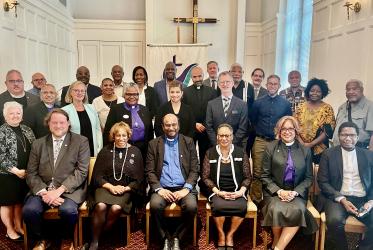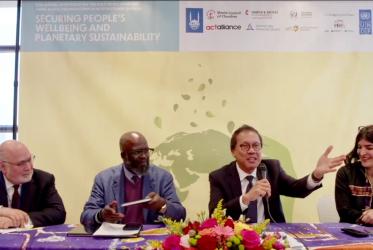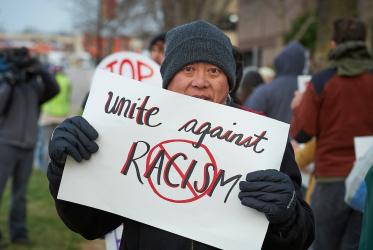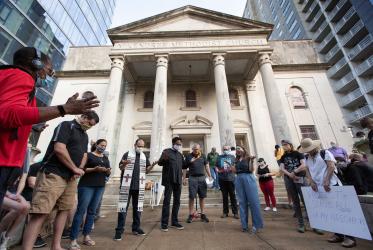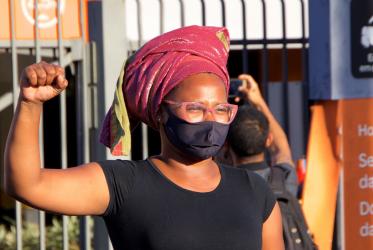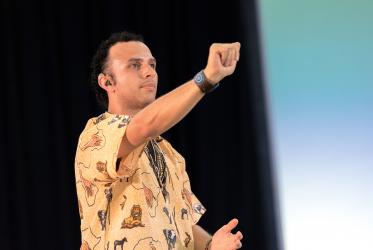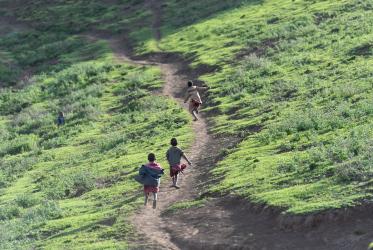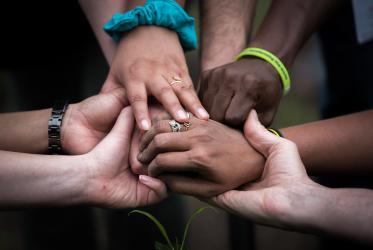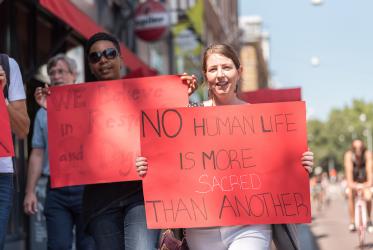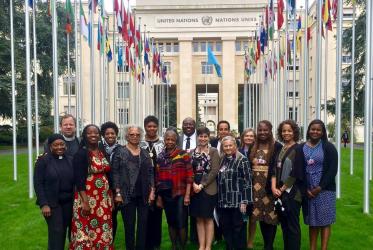Displaying 1 - 20 of 40
Wrestling with the racial pandemic
15 February 2022
Webinar discussion precedes Africa & African Diaspora Conference
21 October 2021
WCC executive committee maps future with hope in uncertain times
19 November 2020
Christian communicators work to counter hate speech against refugees
10 December 2018
US Catholic bishops approve pastoral letter against racism
19 November 2018
WCC executive committee tackles public issues
07 November 2018
Konrad Raiser shares ecumenical journey of transformation
06 February 2018
“The work of truth-telling has to happen”
28 September 2017
